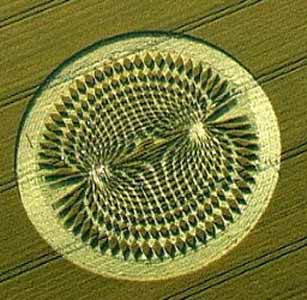

Posted on 12/12/2005 8:01:43 AM PST by PatrickHenry
Occasionally a social issue becomes so ubiquitous that almost everyone wants to talk about it -- even well-meaning but uninformed pundits. For example, Charles Krauthammer preaches that religious conservatives should stop being so darn, well, religious, and should accept his whitewashed version of religion-friendly Darwinism.1 George Will prophesies that disagreements over Darwin could destroy the future of conservatism.2 Both agree that intelligent design is not science.
It is not evident that either of these critics has read much by the design theorists they rebuke. They appear to have gotten most of their information about intelligent design from other critics of the theory, scholars bent on not only distorting the main arguments of intelligent design but also sometimes seeking to deny the academic freedom of design theorists.
In 2001, Iowa State University astronomer Guillermo Gonzalez’s research on galactic habitable zones appeared on the cover of Scientific American. Dr. Gonzalez’s research demonstrates that our universe, galaxy, and solar system were intelligently designed for advanced life. Although Gonzalez does not teach intelligent design in his classes, he nevertheless believes that “[t]he methods [of intelligent design] are scientific, and they don't start with a religious assumption.” But a faculty adviser to the campus atheist club circulated a petition condemning Gonzalez’s scientific views as merely “religious faith.” Attacks such as these should be familiar to the conservative minorities on many university campuses; however, the response to intelligent design has shifted from mere private intolerance to public witch hunts. Gonzalez is up for tenure next year and clearly is being targeted because of his scientific views.
The University of Idaho, in Moscow, Idaho, is home to Scott Minnich, a soft-spoken microbiologist who runs a lab studying the bacterial flagellum, a microscopic rotary engine that he and other scientists believe was intelligently designed -- see "What Is Intelligent Design.") Earlier this year Dr. Minnich testified in favor of intelligent design at the Kitzmiller v. Dover trial over the teaching of intelligent design. Apparently threatened by Dr. Minnich’s views, the university president, Tim White, issued an edict proclaiming that “teaching of views that differ from evolution ... is inappropriate in our life, earth, and physical science courses or curricula.” As Gonzaga University law professor David DeWolf asked in an editorial, “Which Moscow is this?” It’s the Moscow where Minnich’s career advancement is in now jeopardized because of his scientific views.
Scientists like Gonzalez and Minnich deserve not only to be understood, but also their cause should be defended. Conservative champions of intellectual freedom should be horrified by the witch hunts of academics seeking to limit academic freedom to investigate or objectively teach intelligent design. Krauthammer’s and Will’s attacks only add fuel to the fire.
By calling evolution “brilliant,” “elegant,” and “divine,” Krauthammer’s defense of Darwin is grounded in emotional arguments and the mirage that a Neo-Darwinism that is thoroughly friendly towards Western theism. While there is no denying the possibility of belief in God and Darwinism, the descriptions of evolution offered by top Darwinists differ greatly from Krauthammer’s sanitized version. For example, Oxford zoologist Richard Dawkins explains that “Darwin made it possible to be an intellectually fulfilled atheist.” In addition, Krauthammer’s understanding is in direct opposition to the portrayal of evolution in biology textbooks. Says Douglas Futuyma in the textbook Evolutionary Biology:
“By coupling undirected, purposeless variation to the blind, uncaring process of natural selection, Darwin made theological or spiritual explanations of the life processes superfluous.”3
“Evolution in a pure Darwinian world has no goal or purpose: the exclusive driving force is random mutations sorted out by natural selection from one generation to the next. … However elevated in power over the rest of life, however exalted in self-image, we were descended from animals by the same blind force that created those animals. …”5
Mr. Luskin is an attorney and published scientist working with the Discovery Institute in Seattle, Wash.
Would you be so kind as to provide the airing date of the episode of The Tonight Show, and the publication date of the issue of Time, so we can look up what was actually said?
Before Reagan was Nixon's "Southern Strategy."
Sounds to me like C.S. Lewis accepted biology as an inescapable fact, pretty much as the Pope does.
These debate could be more interesting if we could get past the YEC screamers.
Aquinasfan: "Partly, perhaps. But that wouldn't explain why a cardinal and a bishop were funding Copernicus' research efforts, and Copernicus' book was dedicated to the pope in an effort to protect his book from critics."
Excerpt:
In 1632, Galileo completed his Dialogue Concerning the Two Chief World Systems -- Ptolemaic & Copernican. This publication, a twelve year effort, presented all the arguments for and against the two great world systems--the Copernican (sun centered) and the Aristotelian or Ptolemaic (earth centered). Galileo also warned the Church of a trap they were walking into:
"Take note, theologians, that in your desire to make matters of faith out of propositions relating to the fixity of sun and earth you run the risk of eventually having to condemn as heretics those who would declare the earth to stand still and the sun to change position--eventually, I say, at such a time as it might be physically or logically proved that the earth moves and the sun stands still."[16]
The Roman Catholic hierarchy and their Aristotlean-Ptolemaic advisors did not heed this advice. The Roman Curia promptly banned and confiscated Galileo's monumental work; and it became the basis for his second trial, censure, and lifetime house arrest by the Holy Office of the Inquisition in 1633. The Roman Catholic Church convicted him of breaking his agreement of 1616 and of teaching the Copernican theory as a truth and not a hypothesis. They suspected him of holding heretical opinions condemned by the Church, which they ordered him to abjure [abandon a false opinion]. Seven of the ten Cardinals presiding signed his condemnation.[17]
The Holy Tribunal in Galileo's condemnation states: "The proposition that the sun is the center of the world and does not move from its place is absurd and false philosophically and formally heretical, because it is expressly contrary to the Holy Scripture. The proposition that the earth is not the center of the world and immovable, but that it moves, and also with a diurnal motion, is equally absurd and false philosophically, and theologically considered, at least erroneous in faith."[18]
Historical Aftermath of the Galileo Affair
As new observations poured in, evidence grew supporting a Copernican view. The Roman Catholic Church leadership looked like fools, opening a wedge between science and religion that has increasingly widened to today. As Johnston put it, "To the popular mind, the Galileo affair is prima facie evidence that the free pursuit of truth became possible only after science 'Liberated' itself from the theological shackles of the Middle Ages. ...the Galileo case is one of the historic bludgeons that are used to beat on the Church -- the other two being the Crusades and the Spanish Inquisition."[19]
Applications and Lessons Today
Application to Science
Today, Science views Galileo's conflict with Church hierarchy as a great triumph of science over religion. Today Science is king, Nature is the Creator, and God (if He exists) is irrelevant. Galileo would not have viewed it thus, for his faith in the truth of God's Word remained strong. He recognized that God is King and Creator, not Nature.
Misapplication by Theistic Evolutionists and Progressive Creationists
Theistic evolutionists and Progressive Creationists often use a "Two Book" concept to reconcile or compromise the Bible with Science. They claim both the "Book of Nature" and the "Book of Scripture" are true or applicable in their own realm. But today, Science is always put first. Thus, religion must bow to scientific findings. The "Book of Scripture" must yield to and accommodate the "Book of Nature". Theologians must reinterpret or compromise Scripture to accommodate whatever today's Science says is true. When new scientific theories come along, Biblical interpretations must change accordingly.
The Two-Book concept was encouraged by Galileo's view that scientific descriptions in the Bible were not important, for the common man could not understand them. Galileo used the same terminology. For example, Galileo said, "The Book of Nature is written in (clearly-understood) mathematics."[20] Galileo cited Cardinal Baronius (1598) for the statement, "The Bible was written to show us how to go to heaven, not how the heavens go."[21]
Lessons to Religious Authority
The Roman Curia, the religious authorities, imposed Aristotle's view upon the Bible, allowing Greek philosophy to influence its theology. They steadfastly maintained their traditions and erroneous interpretations of Scripture[22] above increasing scientific observations to the contrary. Galileo's published works remained on the Roman Church's Index of Prohibited Books until 1835. Not until 1981 did the Roman Catholic Church officially forgive Galileo.[23]
Van Bebber aptly states, "The Bible is the only infallible, inspired revelation of God. Motivated by a love for the Creator and His word, the believer must carefully weigh his every thought against the standard of the Bible. Those ideas which oppose sound Biblical teachings must be abandoned. Had this been achieved during the days of Galileo, a peaceful and reasonable solution would have helped to strip the Catholic Church of traditional, non-Christian philosophies which proved to hinder its effectiveness."[24]
Lesson to All
A final lesson and warning applies to the Church, Science, and the modern Creationist movement today. Beware of holding steadfastly to a particular interpretation of Scripture and/or a scientific model, which may be in error. For instance, there are various scientific challenges to the Young-Earth Creationist position. We should hold many of our scientific views and their corresponding Biblical interpretations loosely. For we will never have all the right answers this side of heaven."
Not nearly as scary as the list of "A Few Great Books" recommended for reading on your site (at least the science texts). If this is where your understanding of science comes from, it's no wonder you have issues with these theories. You might want to read some better books (one that reflect the progress of mainstream science). (Hint: neither the theories of evolution nor relativity have any real problems)
Oh, indeed, pursue away! Behe likes to compare ID to the Big Bang. The Big Bang had testable implications. That is, it predicted something previously unsuspected and the something eventually turned up.
That's all ID needs to do. Predict something unsuspected and then go find it. Actually discover something instead of trying to undiscover things that we do know.
That would be most welcome. That's also the last thing ID-ers are going to do. Just for one thing, ID doesn't predict ANYTHING.
So you just signed in to say that? Groovy. I'm curious what you think is going on in the numerous refereed Journals of Micro-biology? Are you of the opinion that tangible, positive forensic evidence of ID found in the genes wouldn't be published in the journals? I guess it's the influence of all those qualified professional scientists who'd prefer to decline a guaranteed lock on a Nobel Prize and a chair at Oxford.
Just out of curiosity, who would you nominate for your "qualified professional"?
Public debates are for deciding political issues, and are a pretty lousy device, even at that. If you have something to say, out with it. If that something is just that this is an ineffectual forum, and having a handful of opinionated blowhards go at it orally in public is better,...well, your opinion is duly noted.
Dembski's definition seems as coherent as any: " ID is just the Logos theology of John's Gospel restated in the idiom of information theory."
I assume that Dembski's definition is what the ID supporters are defending.
Strindberg's "Student" claims that analogy is the highest form of reasoning: once one is one thus twice two is two. (The Student gets in trouble on thrice three.)
This is releveant how?
Dang!!!
232 and I just NOW get pinged!
(Has this thread been fun yet??)
I enjoyed using the h1 tag, and credited you with inspiring me. How much more fun could it be?


;^)
LOL!!
Now you're just messing with me. ;)
|
Like this!
 |
Disclaimer: Opinions posted on Free Republic are those of the individual posters and do not necessarily represent the opinion of Free Republic or its management. All materials posted herein are protected by copyright law and the exemption for fair use of copyrighted works.